I have a simple problem and documentation is not helping me resolve it.
I have created a Grails v3.3.3 demo project - and created a simple domain class called JsonApiBook, with 'name' attribute like this
package ttrestapi
import grails.rest.*
@Resource (uri='/jsonApiBook', formats=['json','xml'])
class JsonApiBook {
static constraints = {
}
String name
}
and marked up the URI as the documentation says the JSON API rendering only works with domain classes (and not a controller class).
In my bootstrap I have saved a instance of book to the tables - and can view that generally.
In my views directory I have a created jsonApiBook folder and created two gson files.
A '_jsonApIBook' template like this
import ttrestapi.JsonApiBook
model {
JsonApiBook book
}
json jsonapi.render(book)
which invokes the jsonapi helper object to render the instance.
I have in the same directory created an index.json like this:
import ttrestapi.Book
model {
List<Book> bookList
}
// We can use template namespace
// method with a Collection.
json tmpl.book(bookList)
When I run the app and use postman or browser to render then I get a result but its Json api compliant (I think it's ignored the template).
So localhost:8080/jsonApiBook just returns (looks default layout):
[
{
"id": 1,
"name": "json api book3"
}
]
and localhost:8080/jsonApiBook/1 just returns 'null' which can't be right.
How should I be setting up the json views for rendering JSON API compliant output? As this doesn't appear to work correctly.

